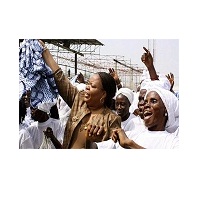Over the last few decades, civil society has been accepted as an important actor in post-conflict peacebuilding. However, the relative importance and the actual roles that civil society representatives play in the peace settlement process have been the subject of a long debate. On one hand, getting the actual actors involved in a conflict to partake in the negotiation seems like a logical step. Take for example the United Nation’s push to include women in peace negotiations, or the involvement of social activists or religious organizations who are instrumental in securing peace- such as Leymah Gbowee in Liberia or the Community of Sant’Egidio in Mozambique. However, on the other hand, many argue that civil society participation tends to slow down the peacemaking process and present an obstacle to ending conflicts. An often cited example of this are the cases where leaders of opposing fractions of a conflict engage in secret or back-channel communications to conceal the impression of “engaging with the enemy” which could cause further escalation.
Until fairly recently, the inclusion vs. exclusion debate concerning civil society in peace negotiations was almost entirely based on case studies and testimonies. However, a pioneer statistical analysis on the impact of the inclusion of civil society actors on the durability of peace agreements may provide more insight into the question of whether more efforts should be made to make peace negotiations more inclusive.
Looking at internal armed conflicts in the period of 1989-2004, and at the terms regarding the role of civil society in 83 peace agreements, researchers found that the inclusion of civil society in the settlement does increase the durability of peace agreements. Whether civil society representatives have a concrete role in the drafting of the agreement or participate in the subsequent peace process, data showed that these more inclusive arrangements tended to enhance the legitimacy of the agreement and, consequently, make peace more sustainable. Moreover, the analysis also showed that peace is even more likely to prevail if the participation of civil society actors is paired with the involvement of political parties, especially in nondemocratic countries where the lack of opportunities for civil participation can be a source of unrest itself.
Although research exploring the mechanisms behind the relationship between civil society participation and the durability of peace agreement is still needed, these findings make a strong case for more inclusive peace processes where women, religious actors, community based organizations, and other members of society have a seat at the negotiation table.
Nilsson, D. (2012). Anchoring the peace: Civil society actors in peace accords and durable peace. International Interactions, 38(2), 243-266.